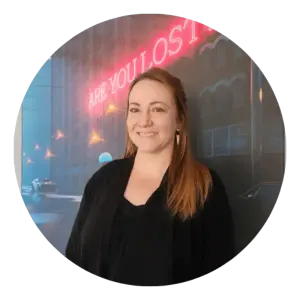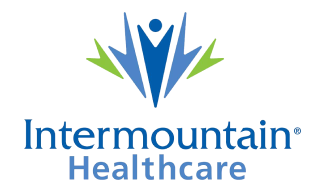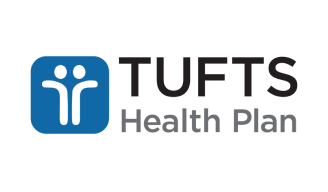Reno, Nevada, United States
The Differents
Verified
Verified
This provider’s information has been quality-checked by Recovery.com’s Research Team for accuracy and completeness, including center verification through appropriate third-party organizations.
Joint Commission Accredited
The Joint Commission accreditation is a voluntary, objective process that evaluates and accredits healthcare organizations (like treatment centers) based on performance standards designed to improve quality and safety for patients. To be accredited means the treatment center has been found to meet the Commission's standards for quality and safety in patient care.
Provider's Policy
We currently accept all major commercial PPO plans and offer payment options to help ease the financial concerns associated with going to treatment. Most insurance plans can help cover up to 100%. We DO NOT accept Medicaid or Medicare.
Estimated Cash Pay Rate
The cost listed here (starts at $25,000 for a double room; and $45,000 for a private room) is an estimate of the cash pay price. Center pricing can vary based on program and length of stay. Contact the center for more information. Recovery.com strives for price transparency so you can make an informed decision.
About The Differents
The Differents reimagines rehabilitation. Instead of running from addiction, clients are encouraged to run toward a new self. The Differents treats substance use and co-occurring disorders with innovative programming, a people-first approach, and personalized solutions. They offer 24/7 medically supervised withdrawal management and immersive residential, partial hospitalization, and intensive outpatient programming. Each day, clients engage in evidence-based and holistic modalities, carefully curated to foster self-discovery and personal growth.
Experience a 360° Approach to Recovery
The Differents understands that recovery isn’t one-size-fits-all. Their holistic, client-centered approach begins with a comprehensive assessment to determine each client’s needs and goals, considering addiction severity, mental health conditions, and past treatment experiences. Treatment plans may include individual counseling, group and family therapy, medication management, psychiatric assessments, magnetic resonance therapy (MeRT), IV vitamin infusion therapy, and more. This personalized approach ensures the most effective care, with clients receiving over 2 hours of 1:1 counseling and 35-40 hours of group therapy per week.
Receive Care That Prioritizes Human Connection
The Differents unshackles their clinicians creates a recovery habitat where people are treated like people, and there are no cold, sterile rooms. Collaborative healing allows those in recovery to help design their treatment plans, supported by a 1:3 staff-client ratio—far better than the industry standard of 1:10. Emphasizing human connection, the community joins together to help clients find life on the other side of addiction.
Relaunch Life in a Breathtaking Setting
With panoramic views of the ruggedly beautiful landscape and 18,000 sq. ft. of luxury accommodations, including 10 single-occupancy suites, The Differents provides space, comfort, and privacy for healing. Their art-filled center features a bowling alley, basketball court, billiards, a gym, and outdoor activities like horseback riding, hiking, and winter adventures. Exclusive partnerships with top-tier beauty professionals ensure clients can indulge in pampering services, from facials to massages.
Read More

Insurance Accepted
Provider's Policy:We currently accept all major commercial PPO plans and offer payment options to help ease the financial concerns associated with going to treatment. Most insurance plans can help cover up to 100%. We DO NOT accept Medicaid or Medicare.
Luxury rehab centers offer a unique blend of luxurious amenities and high-quality treatment. From private suites to gourmet dining, personal trainers to spa treatments, these facilities provide a high level of comfort and discretion.

Enjoy Endless Recreation & Creative Outlets
Set against a Lake Tahoe backdrop, The Differents offers a sanctuary for anyone longing for a life reimagined. Activities like hiking, skiing, kayaking, and wild mustang adventures connect clients with the rhythms of the world outside their struggles. A music studio, art rooms, and a photography studio encourage clients to creatively let their emotions flow.
Uncover & Treat Root Causes of Addiction
The Differents treats co-occurring mental health and substance use disorders with an integrated approach that addresses both conditions simultaneously. A comprehensive evaluation identifies underlying causes and contributing factors, guiding a personalized treatment plan. By understanding these complex connections, clients receive tailored support to overcome challenges and achieve lasting recovery.
Take a Specialized Approach for Veterans
Many veterans return home with more than physical injuries, sometimes turn to alcohol and drugs to cope. That’s why The Differents offers stigma-free treatment tailored for veterans, addressing PTSD, trauma, depression, anxiety, brain injuries, and addiction. Their program provides detox, medication-assisted treatment, and therapy within a framework that respects military experience.
Access Flexible Care for First Responders
The Differents provides private, flexible treatment for first responders, offering IOP and OP programs that allow recovery while living at home and maintaining employment. The first responders program offers specialized groups that cover mindfulness, nutrition and health, emotional management, relapse prevention, and addiction education. Some clinicians have direct experience as first responders, ensuring informed, compassionate care.

Center Overview
Estimated Cash Pay Rate
Older Adults
Addiction and mental health treatment caters to adults 55+ and the age-specific challenges that can come with recovery, wellness, and overall happiness.
Executives
Executive treatment programs typically directly support the needs of people who manage businesses and may provide flexible schedules and office space to allow work during treatment.
Young Adults
Emerging adults ages 18-25 receive treatment catered to the unique challenges of early adulthood, like college, risky behaviors, and vocational struggles.
LGBTQ+
Addiction and mental illnesses in the LGBTQ+ community must be treated with an affirming, safe, and relevant approach, which many centers provide.
Men and Women
Men and women attend treatment for addiction in a co-ed setting, going to therapy groups together to share experiences, struggles, and successes.
Midlife Adults
For adults ages 40+, treatment shifts to focus on the unique challenges, blocks, and risk factors of their age group, and unites peers in a similar community.
Mild Disabilities
Adults with mild physical or intellectual disabilities receive treatment catered to their specific needs in a safe and clinically supportive environment.
Professionals
Busy, high-ranking professionals get the personalized treatment they need with greater accommodations for work, privacy, and outside communication.
Veterans
Patients who completed active military duty receive specialized treatment focused on trauma, grief, loss, and finding a new work-life balance.

Treatment Focus
This center treats primary substance use disorders and co-occurring mental health conditions. Your treatment plan addresses each condition at once with personalized, compassionate care for comprehensive healing.

Care Options










Treatment
Specializations
Alcohol
Using alcohol as a coping mechanism, or drinking excessively throughout the week, signals an alcohol use disorder.
Drug Addiction
Drug addiction is the excessive and repetitive use of substances, despite harmful consequences to a person's life, health, and relationships.
Outpatient
During outpatient rehab, patients attend a structured treatment program while continuing to live at home.
Veterans
Patients who completed active military duty receive specialized treatment focused on trauma, grief, loss, and finding a new work-life balance.
Trauma
Some traumatic events are so disturbing that they cause long-term mental health problems. Those ongoing issues can also be referred to as "trauma."
First Responders Program
Paramedics, police officers, firefighters, and others join in a specific First Responders program, usually focused on trauma, grief, and work-life balance.
Sober Living
These structured living environments help people transition out of rehab. Residents have more freedom than they do during rehab, but still follow certain rules.
Approaches
Bio-Medical
A philosophy focusing on the biomechanics behind mental health disorders, using prescribed medications as a supplement to behavioral therapy.
Evidence-Based
A combination of scientifically rooted therapies and treatments make up evidence-based care, defined by their measured and proven results.
Holistic
A non-medicinal, wellness-focused approach that aims to align the mind, body, and spirit for deep and lasting healing.
Individual Treatment
Individual care meets the needs of each patient, using personalized treatment to provide them the most relevant care and greatest chance of success.
Therapies
1-on-1 Counseling
Patient and therapist meet 1-on-1 to work through difficult emotions and behavioral challenges in a personal, private setting.
Meditation & Mindfulness
A practiced state of mind that brings patients to the present. It allows them to become fully aware of themselves, their feelings, and the present moment.
Rational Emotive Behavior Therapy
A type of cognitive therapy that identifies negative self-defeating thoughts and behaviors, rewriting beliefs to be positive, empowering, and present.
Transcranial Magnetic Stimulation
Localized magnetic pulses stimulate areas of the brain to increase brain activity and reduce abnormal functions.
Mindfulness Therapy
This ancient practice can be mental, emotional, and even spiritual. In meditation, you focus your attention on the present moment without judgement.
Adventure Therapy
This experiential approach uses the physical and emotional challenges of outdoor activities as tools for personal growth.
Art Therapy
Visual art invites patients to examine the emotions within their work, focusing on the process of creativity and its gentle therapeutic power.
Body Image Therapy
Therapists use cognitive behavior techniques to challenge how patients perceive their body and their worth, rewriting negative thoughts and attitudes.
Conditions We Treat
Grief and Loss
Grief is a natural reaction to loss, but severe grief can interfere with your ability to function. You can get treatment for this condition.
Personality Disorders
Personality disorders destabilize the way a person thinks, feels, and behaves. If untreated, they can undermine relationships and lead to severe distress.
ADHD, ADD
ADHD is a common mental health condition caused by dopamine imbalance. Common symptoms include inattention, hyperactivitiy, and impulsivity.
Anger
Although anger itself isn't a disorder, it can get out of hand. If this feeling interferes with your relationships and daily functioning, treatment can help.
Anxiety
Anxiety is a common mental health condition that can include excessive worry, panic attacks, physical tension, and increased blood pressure.
Bipolar
This mental health condition is characterized by extreme mood swings between depression, mania, and remission.
Burnout
Burnout entails mental and physical exhaustion, and leads to a severe lack of fulfillment. This condition is often caused by overwork.
Chronic Pain Management
Long-term physical pain can have an affect on mental health. Without support, it can also impact your daily life and even lead to addiction.
Codependency
Codependency is a pattern of emotional dependence and controlling behavior. It's most common among people with addicted loved ones.
Substances We Treat
Alcohol
Using alcohol as a coping mechanism, or drinking excessively throughout the week, signals an alcohol use disorder.
Benzodiazepines
Benzodiazepines are prescribed to treat anxiety and sleep issues. They are highly habit forming, and their abuse can cause mood changes and poor judgement.
Chronic Relapse
Consistent relapse occurs repeatedly, after partial recovery from addiction. This condition requires long-term treatment.
Co-Occurring Disorders
A person with multiple mental health diagnoses, such as addiction and depression, has co-occurring disorders also called dual diagnosis.
Cocaine
Cocaine is a stimulant with euphoric effects. Agitation, muscle ticks, psychosis, and heart issues are common symptoms of cocaine abuse.
Drug Addiction
Drug addiction is the excessive and repetitive use of substances, despite harmful consequences to a person's life, health, and relationships.
Ecstasy
Ecstasy is a stimulant that causes intense euphoria and heightened awareness. Abuse of this drug can trigger depression, insomnia, and memory problems.
Heroin
Heroin is a highly addictive and illegal opioid. It can cause insomnia, collapsed veins, heart issues, and additional mental health issues.
Psychedelics
Hallucinogenic drugs—like LSD—cause euphoria and increased sensory experiences. When abused, they can lead to depression and psychosis.
Aftercare
Experience
Personal Amenities
Amenities
Special Considerations
Executive Program
Addiction and mental health treatment for executives typically involves high discretion, greater technology access, and more private, 1-on-1 care.
First Responders Program
Paramedics, police officers, firefighters, and others join in a specific First Responders program, usually focused on trauma, grief, and work-life balance.
Activities
Yoga
Yoga is both a physical and spiritual practice. It includes a flow of movement, breathing techniques, and meditation.
Off-Site Activities
Professional Staff

Damon Zavala
Medical Director
D.O, F.H.M

Brandon Cassinelli
Mental Health Counselor
MFT-I

Vanessa Koepsell
Counselor
LMSW, CADC-I

Amy Jackson
Addiction Counselor
CADC-PC
View More Team Members
Accommodations
Food & Nutrition
Treatment
Value
Chris
We love hearing about your treatment experience
Help individuals and families seeking treatment by sharing your first-hand experience with this treatment provider. Review Guidelines.



















































